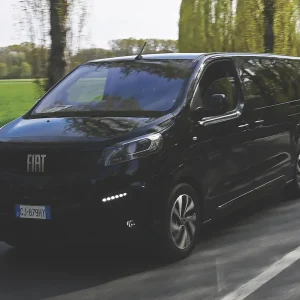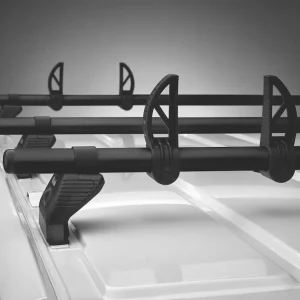As life has started to return to normal, the roads have become an awful lot busier, and whether you are on the daily commute, have a busy a delivery schedule or are just going about your business, driving can be a stressful part of the day.
But does the van you drive play a part in just how stressed you are? We wanted to find out if an electric van is less stressful to drive than a diesel equivalent and if the quieter more relaxed atmosphere of an EV can lead to a happier and healthier driver.
With no gear changes, less noise and fewer vibrations EVs have often been claimed to be more relaxing but how can you measure that?
Using a medical-grade wearable monitor, What Van? took part in a little experiment to determine the relative stress levels of driving an electric van compared to a diesel while in London rush hour, mimicking the multidrop work of a courier by visiting a number of locations and delivering a package.
With the help of a super scientist, psychoacoustic expert Dr Duncan Williams CTO of biometric and psychoacoustic consultancy firm WaveTrace, we were hooked up to the health monitor to measure our biophysiological responses to the driving exercise.
Not too dissimilar to a wearable health monitor like a FitBit, the wristwatch-like gadget, called an Empatica E4 measures the blood flow and sweat levels on the skin using a photoplethysmography sensor. It detects the heart rate, electrodermal activity, body temperature and muscle movement, all of which can help indicate the levels of stress in the body. London traffic is well-known for being challenging so higher levels across the range of the data, along with a short and snappy stress survey after each drive, help to determine whether an electric van is less stressful to drive than a diesel equivalent. The test vehicles are the new Fiat E-Ducato and the current Fiat Ducato, which share an interior, enabling the comparison to be all about the driveline. We’re also not the only participants, as with any good experiment the results will be evened out over a test group of guinea pigs with varying levels of experience in both driving vans and London’s traffic.
Most people would predict that the electric vehicle would come out on top in this test for several reasons. The Fiat E-Ducato’s quick and responsive powertrain makes it well suited to city driving and the lack of a thudding diesel is noticeably more relaxing. The diesel engine van is 10dB louder than the electric, which is equal to being four times louder – the difference, we’re told, between someone talking from one metre away compared to someone shouting from the same distance. The diesel’s sound was also 55% sharper than in its EV sibling, which in the field of psychoacoustics – where sharpness and shrillness are commonly associated with how annoying a noise is considered to be – means there is a logical correlation between annoyance and the stress of the sound.
Focusing on the noisiness of the cabin, the drivers’ biometric responses showed the E-Ducato was in fact less stressful than its ICE counterpart, with drivers producing significantly lower levels of sweat, having a lower heart rate and also a lower body temperature when driving the E-Ducato compared to the regular diesel van.
The stress survey corroborated the findings with marginally lower levels of stress for the electric E-Ducato. But the data also showed drivers’ biometric markers suggested higher levels of stress than they actually reported in the questionnaire, which shows the drivers’ physiological stress indicators were higher than their perceived level of stress – meaning they thought it was less stressful than it actually was, a sort of electric van stress placebo.
Speaking after the experiment, Dr Williams said: “We already know that noise on the roads is a real problem for people who aren’t part of the traffic, but finding out how drivers respond behind the wheel is still very new territory. The results clearly show a strong correlation between the quietness of the E-Ducato and lower levels of stress in comparison to an ICE van. While the diesel was louder, a number of the participants found it to be a comforting and more familiar sound with a perceived level of stress only a fraction higher than the electric van.”
“It’s a fascinating result and, given the movement towards electric commercial vehicles, shows there are more benefits to van drivers going electric beyond things like cost saving on fuel.”





